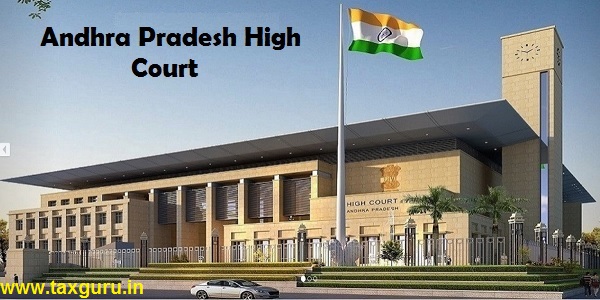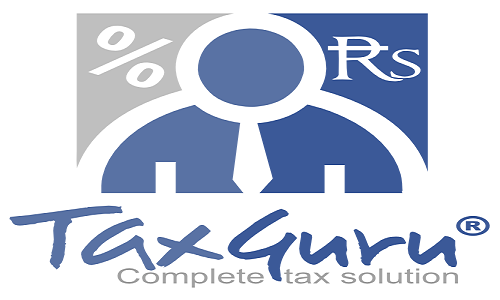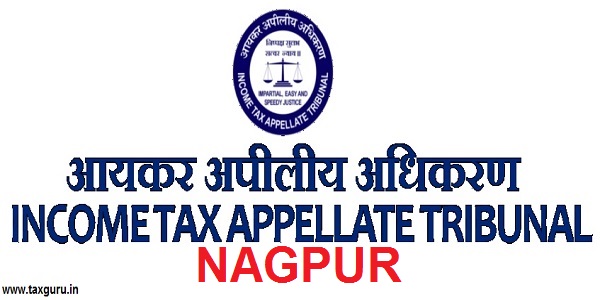
Prior Month’s REA Usable for Next Month’s GST Refund: AP HC in Tamil
- Tamil Tax upate News
- October 21, 2024
- No Comment
- 6
- 15 minutes read
SEIL Energy India Limited Vs Union of India (Andhra Pradesh High Court)
In the case of SEIL Energy India Limited Vs Union of India, the Andhra Pradesh High Court addressed the issue of whether a Regional Energy Account (REA) for a preceding month can be used to apply for a GST refund in the succeeding month. SEIL Energy India Limited, engaged in exporting electricity, had faced rejection of its refund applications due to discrepancies over the timing of REA submissions. The petitioner argued that, according to the provisions of the Integrated Goods and Services Tax Act (IGST Act) and amendments to the Central Goods and Services Tax Rules (CGST Rules), furnishing the REA for the preceding month should be permissible when applying for refunds for the current month. The court agreed with the petitioner, noting that the REA for the prior month could be used for refund applications for the succeeding month as long as other requirements are met. The court directed that the applications for refunds be considered accordingly, overturning previous rejections and aligning with the updated legal framework.
FULL TEXT OF THE JUDGMENT/ORDER OF ANDHRA PRADESH HIGH COURT
M/s. SEIL Energy India Limited is the petitioner in all these writ petitions. As the same issue is raised in all these writ petitions, they are being disposed of, by way of this common order.
2. Heard Sri Raghavan Ramabadran, learned counsel appearing on behalf of Sri Lakshmi Kumaran Sridharan, learned counsel for the petitioner and Sri Y.N. Vivekananda, learned counsel for the respondents.
3. The petitioner generates electrical power and sells the same to its customers. For the period January 2022 to October 2022, the petitioner had been selling/supplying electricity to M/s. Bangladesh Power Development Board. The petitioner, contending that such supply of electricity would amount to an export sale, which is exempted from tax under the Integrated Goods and Services Tax Act, 2017 (herein referred to as “IGST Act”), had sought refund of the input tax credits available to the petitioner for these months.
4. The petitioner had filed separate applications for refund, for each month for the period January 2022 to October 2022. These applications were not accepted on the ground that the petitioner had not filed the bill of shipping for supply of electricity. This issue was raised by way of a show cause notice by the respondents. By this time, earlier orders of rejection, on the same ground, had been challenged before this Court by way of W.P.No.11194 of 2021 and batch. The contention raised by the petitioner, in those Writ Petitions, was that electricity is an intangible and the question of obtaining the bill of shipping for such intangibles cannot arise. While these cases were pending, there was an amendment to Rule 89 of the Central Goods and Services Tax Rules, 2017 (herein referred to as “CGST Rules”) substituting the requirement of producing the bill of shipping with the requirement of furnishing the Regional Energy Account (herein referred to as “REA”) maintained by the concerned Regional Load Dispatch Center, as proof of export, even if the bill of shipping is not produced.
5. The question of whether such amendment to the Rule is prospective or retrospective had remained and the same was answered in a Judgment dated 26.08.2022 passed by a Hon‟ble Division Bench of this Court in W.P.No.11194 of 2021 and batch. This Court had taken the view that the said amendment should be treated as retrospective and the benefit of the amended Rule would be available to the petitioner.
6. The 2nd respondent, who had earlier issued a show cause notice requiring the production of bill of shipping, amended the said notice and called upon the petitioner to produce the REA account maintained by the Regional Load Dispatch Center for processing the applications. Consequently, the petitioner produced the said REA account for the periods January 2022 to October 2022. However, these applications were rejected by the 2nd respondent by various orders. The 2nd respondent took the view that Rule 89 of the CGST Rules requires the dealer to place necessary materials such as input tax credit, turnover of zero rated supply of goods, adjusted total turnover, etc. for the “relevant period”. He also took the view that the relevant period would be the month for which the refund is sought. The 2nd respondent noticed that the petitioner, while applying for refund for the month of January 2022 was filing the REA for the month of December 2021 and so on.
7. The petitioner being aggrieved by the said orders of rejection had filed appeals, in some of these cases, before the 3rd respondent, who had dismissed the appeals accepting the contention of the 2nd The petitioner had filed appeals in W.P.Nos.15410, 15387 & 15416 of 2023 and has approached this Court directly against the orders in original in the remaining writ petitions.
8. Sri Raghavan Ramabadran, learned counsel appearing for the petitioner contends that the view taken by the Primary Authority and the Appellate Authority is incorrect. He would take us to the provisions of the Act and the Rules to contend that supply of electricity, which would fall within the ambit of the definition of „continuous supply of goods‟ r/w with other provisions of the Act requires the supplier of such goods to raise an invoice, and it is only on that date, that the supply is said to have occurred. He would submit that since the invoice for the previous month was being filed by the 7th day of the succeeding month, the REA account of the previous month would be the relevant REA for considering the application for refund for the succeeding month.
9. Sri Y. N. Vivekananda, learned counsel for the respondents would support the view taken by the Primary Authority and the Appellate Authority. He would submit that the Rule is clear and unambiguous and it is only the REA for the month for which refund is being sought that can be looked into for deciding whether a refund is payable or not. He would submit that as the petitioner had not filed the REA for the relevant period, the order of rejection cannot be faulted.
Consideration of the Court:
10. A brief review of the provisions of law would be necessary before going into this question. The CGST Act provides for taxation of supply of sale of goods and supply of services of various kinds. One such category would be continuous supply of goods or continuous supply of services. The term “continuous supply of goods” is defined under Section 2 (32) of the CGST Act as follows:
(32) “continuous supply of goods” means a supply of goods which is provided, or agreed to be provided, continuously or on recurrent basis, under a contract, whether or not by means of a wire, cable, pipeline or other conduit, and for which the supplier invoices the recipient on a regular or periodic basis and includes supply of such goods as the Government may, subject to such conditions, as it may, by notification, specify;
11. The question as to how such continuous supply of goods is to be taxed would arise because the supply of goods would be in a continuous form and the taxing authority would have to fix a point of time where the value of supply of such goods can be assessed and taxed. For this purpose, the legislature, under Section 12 of the CGST Act, fixed the time of supply. This provision reads as follows:
(1) The liability to pay tax on goods shall arise at the time of supply, as determined in accordance with the provisions of this section.
(2) The time of supply of goods shall be the earlier of the following dates, namely:–
(a) the date of issue of invoice by the supplier or the last date on which he is required, under sub-section (1) of section 31, to issue the invoice with respect to the supply; or
(b) the date on which the supplier receives the payment with respect to the supply:
Provided that where the supplier of taxable goods receives an amount up to one thousand rupees in excess of the amount indicated in the tax invoice, the time of supply to the extent of such excess amount shall, at the option of the said supplier, be the date of issue of invoice in respect of such excess amount.
Explanation 1.–For the purposes of clauses (a) and (b), “supply” shall be deemed to have been made to the extent it is covered by the invoice or, as the case may be, the payment.
Explanation 2.–or the purposes of clause (b), “the date on which the supplier receives the payment” shall be the date on which the payment is entered in his books of account or the date on which the payment is credited to his bank account, whichever is earlier.
(3) In case of supplies in respect of which tax is paid or liable to be paid on reverse charge basis, the time of supply shall be the earliest of the following dates, namely:–
(a) the date of the receipt of goods; or
(b) the date of payment as entered in the books of account of the recipient or the date on which the payment is debited in his bank account, whichever is earlier; or
(c) the date immediately following thirty days from the date of issue of invoice or any other document, by whatever name called, in lieu thereof by the supplier:
Provided that where it is not possible to determine the time of supply under clause (a) or clause (b) or clause (c), the time of supply shall be the date of entry in the books of account of the recipient of supply.
(4) In case of supply of vouchers by a supplier, the time of supply shall be–
(a) the date of issue of voucher, if the supply is identifiable at that point; or
(b) the date of redemption of voucher, in all other cases.
(5) Where it is not possible to determine the time of supply under the provisions of sub-section (2) or subsection (3) or sub-section (4), the time of supply shall–
(a) in a case where a periodical return has to be filed, be the date on which such return is to be filed; or
(b) in any other case, be the date on which the tax is paid.
(6) The time of supply to the extent it relates to an addition in the value of supply by way of interest, late fee or penalty for delayed payment of any consideration shall be the date on which the supplier receives such addition in value.
12. Section 12 (2) of the CGST Act provides for fixing the time of supply on either of two eventualities. The time of supply can be fixed on the date when the invoice for such supply is prepared and sent by the supplier or on the date on which the payment for such supply is made by the person receiving such goods. However, the legislature has also stipulated that the earlier of these two eventualities would be treated as the time of supply for the purpose of assessment of tax. Section 12(2) also states that the point of time when the invoice can be raised would have to be in accord with the Section 31 (4) of the CGST Act, which reads as follows:
(4) In case of continuous supply of goods, where successive statements of accounts or successive payments are involved, the invoice shall be issued before or at the time each such statement is issued or, as the case may be, each such payment is received.
13. A reading of these provisions makes it clear that the time of continuous supply of goods is not relevant and it is only the point of time when the invoice is raised or price is paid, whichever is earlier, that would be relevant for determining the point of tax in time and consequently, the period of supply of goods for which an invoice is raised should be taken into account, rather than the point of time at which the invoice has been raised, should be taken as the “relevant period”.
14. In the present cases, the undisputed fact is that the petitioner was required to raise an invoice for the supply of electricity for a particular month by the 7th day of the succeeding month. This stipulation is contained in the power purchase agreement executed between the petitioner and M/s. Bangladesh Power Development Board. This would mean that though supply of electricity was done in the month of December, the time of supply, by legal fiction, would be the date on which the bill was presented in the month of January and so on and so forth.
15. In such circumstances, furnishing of the REA for the preceding month, while making an application for refund in the succeeding month would be in accord with the said provisions of the Act and Rules.
16. Accordingly, these Writ Petitions are allowed, setting aside the orders in appeal and the orders in original contained in the table set out in the present order, with a direction to the 2nd respondent to consider the applications of the petitioner for grant of refund, if everything else is in accord with the requirements, by permitting the petitioner to produce the REA of the previous month as the proof of export for the refund applications made in the succeeding month. There shall be no order as to costs.
As a sequel, interlocutory applications pending, if any shall stand closed.



